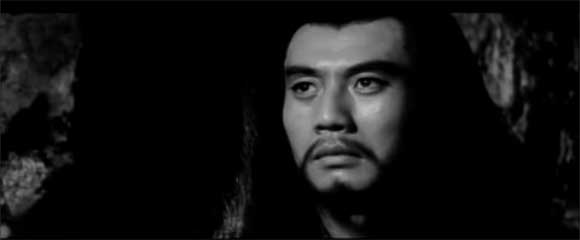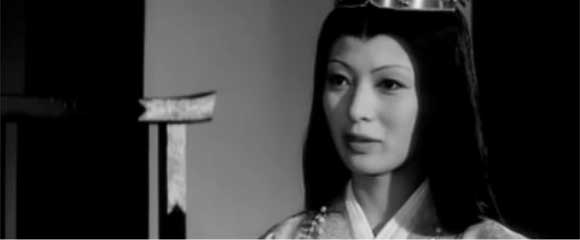Yoso
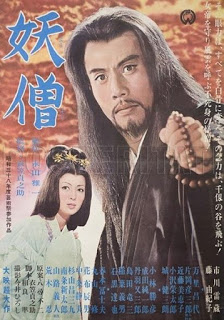
Director: Teinosuke Kinugasa
Year: 1963
Rating: 8.0
Aka - Bronze Magician
Aka - Priest and Empress
It was a bit of luck coming upon this film
(Yoso) on YouTube when it popped up under a search for "Japanese English
subtitle". Something I do periodically. I downloaded it having no idea what
it was but it turns out to be a classic from director Teinosuke Kinugasa
whose film career stretched back to the silent period which included his
famous experimental film A Page of Madness (1926). His other best-known film
available to non-Japanese speakers is the 1953 Gate of Hell. In reading about
Teinosuke it seems he somehow fell between the cracks for Western viewers
though he is critically acclaimed in Japan. On IMDB he has about 125 directorial
credits but many have been lost and very few have been transferred to DVD
with subs. At least on the basis of this one, that is a shame. This film
is masterfully done - all aspects of it from the acting, the dramatically
pounding soundtrack (Akira Ifukub, who did many for the Kaiju films but literally
over 280 others), the cinematography and the elegant but minimal set designs.
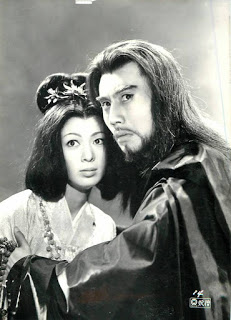
It is a very somber slow moving period
film that is based on a true incident back in the 800's in which a monk gained
a great deal of influence over the Empress Koken-Shotuko. She was the ruler
of the nation. By taking on this subject Teinosuke explores themes of religion,
gender, politics, government's responsibility to the people, corruption and
man's fallibility to desire. Most Japanese period films dealing with
royalty that I see are filled with lavish detail - spectacular castles, costumes
and décor. This was shot in black and white and is simplicity itself.
No grand sets at all - just an outdoor courtyard, meeting spaces, hallways,
a place to pray and the Empress's bedroom. No walls - just light gauzy material
to separate the rooms. Which allows little privacy and a lot of spying. This
makes it feel theatrical and in truth it could be performed on a stage.
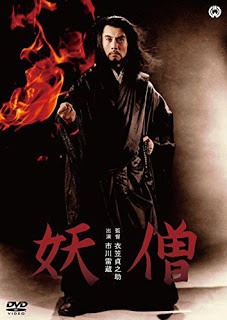
The film begins with a Buddhist monk in
a cave declaring that he has spent ten years studying his dead Master's work
and is now ready to enter the world and do good. He uses his prayer beads
to zap a rat and a snake. This is Dokyo (played with severe authority and
a deep baritone voice by Ichikawa Raizô, very famous for his action
roles in the Sleepy Eyes of Death series and the Shinobi No Mono films).
Dokyo is a Christ figure to some degree with a strong flavoring of a benign
Rasputin and even a side order of Franklin D Roosevelt. He cures the sick,
raises the dead, cares for the poor - and his acts are brought to the attention
of the court. The Empress (Fuji Yukiko) has been sick since childhood and
may be dying. But is still stunningly beautiful.
